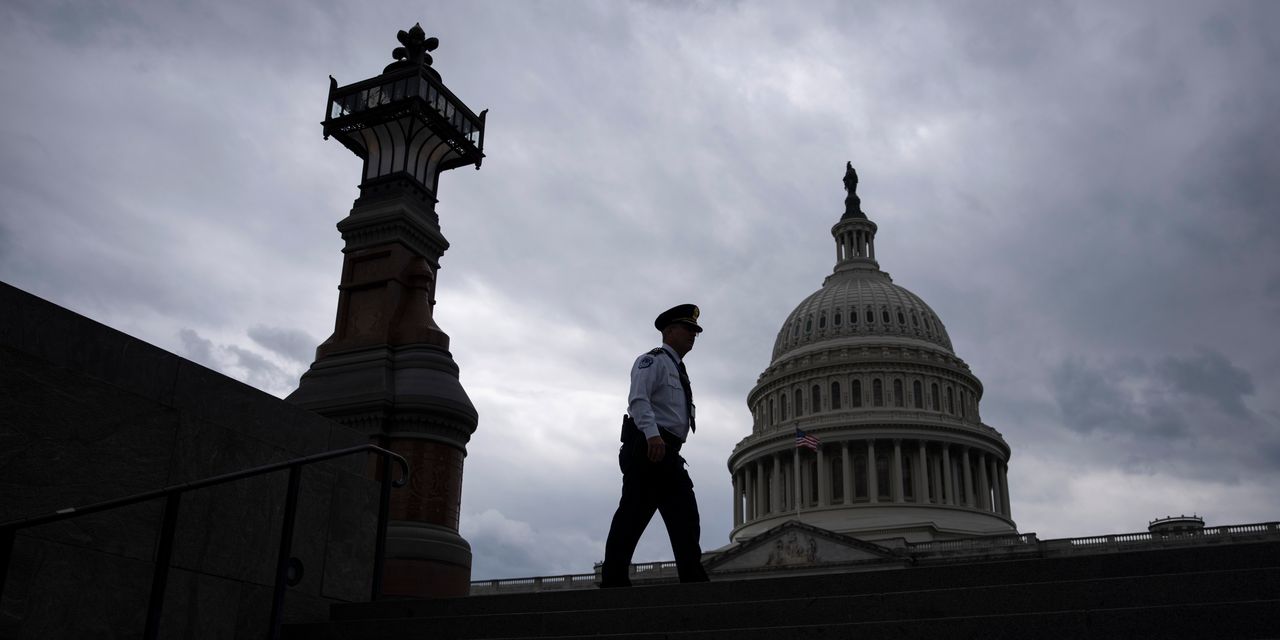As the U.S. hurtles closer to the early June deadline to resolve the debt-ceiling crisis, the stock market has been relatively sanguine about dancing so close to the cliff’s edge.
Yet, even an expected 11th-hour resolution could still cause problems for investors.
The fallout from default would no doubt be wide and disastrous, from a plunge in the stock market—and retirement account values—to the halt of Social Security and other government benefits that millions of Americans depend on. And then add the long-term repercussions of irreparable damage to global faith in the U.S. economic system.
A casual observer might not think so, given how Wall Street has largely shrugged off these effects as doomsday approaches. Nonetheless, as J.P. Morgan equity macro strategist Dubravko Lakos-Bujas wrote on Monday, the U.S. is approaching a “fiscal Rubicon.” The fact that stock investors have been so blasé about the possibility of a default—despite a challenging political backdrop and lack of alternatives to congressional action—could lead to “significant equity repricing” if a deal isn’t reached, he said.
In fact, while stocks have climbed, debt markets have been much more sensitive to the problem. The one-month treasury bill, which straddles the deadline, is trading at a record 5.718%, surpassing the high of 5.633% set on May 12. The yield is up 0.239 of a percentage point, its largest one-day gain since May 5, showing that investors are demanding increased payout for what they see as rising risk.
Lakos-Bujas, like many others, still believes that a deal will get done. But he noted that “contentious debates such as the near-default in 2011 should serve as cautionary tales of the equity market disregarding and then violently repricing the risk of a U.S. default,” such as when the
S&P 500
slumped some 17% in two weeks in 2011.
The problem: There are key differences between now and 2011. Today, monetary policy is tightening, the money supply is collapsing, inflation is higher, and stock valuations are richer. And nearly all of those changes have heightened the likelihood of a selloff in riskier assets if default comes to pass.
Even with an eventual solution, the fact that the situation is nearly down to the wire could still lead to much greater market instability that right now appears priced in. Lakos-Bujas warns that he expects any deal “to negatively impact federal spending and for a likely contentious budget-negotiation process later this year.”
In addition, the fact that a debt-ceiling raise could turn out to be more of a short-term solution means the country might have to endure another round of negotiations next year—with all the same obstacles, and the added pressure of a presidential election.
That leaves the market with two big worries, he wrote.
The first is that there is the “potential for a violent risk-off move in equities as we get closer to the projected x-date of early June without a broadly supported resolution.” In other words, the market may suddenly wake up to the danger all at once as the clock runs out, leading to major losses.
The second is that there could be federal spending cuts for some of the Biden administration’s key priorities as a result of a comprehensive debt-ceiling deal, or federal budget negotiations in the fall.
To hedge the risk of market swings around the approaching deadline, Lakos-Bujas recommends buying call spreads—a strategy in which investors buy and sell two call options at different prices simultaneously, which limits losses—on the
Cboe Volatility Index
(VIX). In terms of positioning themselves ahead of possible changes in government spending, he recommends paring ownership of stocks with exposure to green/climate change, and electric-vehicles.
While politicians playing with fire is nothing new, it’s worth remembering that this particular tactic is.
“The extreme politicization of the debt ceiling has been a relatively recent development starting in 2011, which also happens to be the most contentious debt-ceiling raise in modern history, which ultimately ended with an S&P downgrade of the U.S. sovereign credit rating,” Lakos-Bujas wrote.
Death and taxes may have always been inevitable, but this kind of political wrangling wasn’t.
Write to Teresa Rivas at [email protected]
Read the full article here




